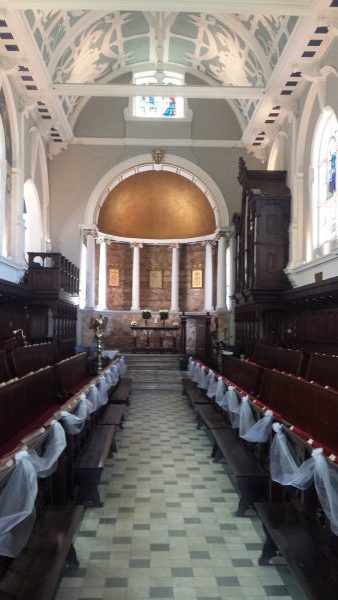
by Michael | Jun 18, 2024 | Blog
The religious wedding is undeniably in decline, but still has a place for many. Sometimes, it is the couple’s choice; on occasion, outside influences (such as family pressure) may dictate the decision.
Whatever the reason, marriage in places of worship accounts for fewer than 20% of all ceremonies conducted in England & Wales. (Incidentally, same-sex marriage accounted for less than 1% of these ceremonies.)
More couples are choosing to live together, rather than marry. This doesn’t fully explain the significant drop in those opting for the fully religious marriage. Church-going in general is definitely declining, though.
One reason for the fall in popularity of religious services is rigidity. There is little room for flexibility or variance. The standard service has to be followed. The liturgy rules. It is not personal to the couple.
(That’s not a criticism – this suits many people, after all, and the service can still be very beautiful.)
It is, of course, possible to find a compromise. If you use a civil celebrant, then you may be able to mix the religious and the spiritual, and come out with a unique and meaningful ceremony.
The celebrant-led service may well be an option for precisely the reasons already stated, but may also work for those whom the Church refuses to marry. (Catholic divorcees or those wanting mixed marriages, for example.)
One other potential advantage of having a celebrant-led ceremony is that you have choice of venue. Lovely as a church is, it may not offer the desired atmosphere or location. Why not choose wherever you want to marry as your venue?
Ultimately, it’s a matter of personal conviction as well as choice, but you really can have what you actually want for your big day.
I would be happy to have a chat with you, if this has set you thinking!
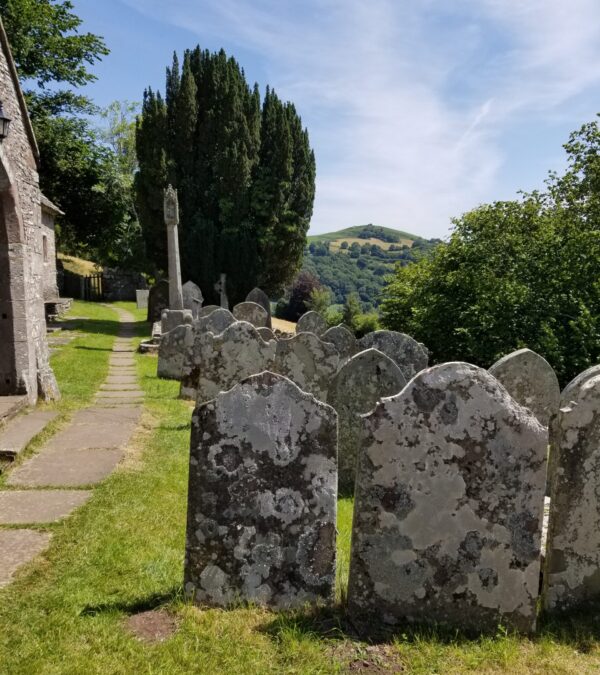
by Michael | Jun 10, 2024 | Blog
Being a civil celebrant has its challenges. I never know quite what to expect when I contact my next client.
It may be relatively simple. The client is looking to mark a major event in a joyous way. Or fairly solemnly. Or even a mixture …
The point is that the client has expectations and, whatever they may be, I need to be aware of this and act upon them.
So my discovery conversation is based upon me asking the right questions to establish the client’s vision.
That can apply to a funeral just as much as to a joyful event.
Either way, we need to work out the tone of the ceremony and which (if any) religious elements we include. Then we can agree on the content.
There are surprisingly few differences in the way a funeral and a celebratory event are prepared. The process is similar, although the eventual tone (and content) may not be.
One likely difference is the atmosphere that surrounds our discovery call For a celebration, people are usually good-humoured and amenable. For a funeral, the client could be in any stage of grieving (denial, anger, bewilderment, guilt, etc.). I recall visiting one family of four, all of whom were cracking jokes. On the day of the funeral, they were crying their hearts out. Laughter had been their way of coping.
I hinted earlier at more challenging instances. Well, there have been quite a few of these.
Bad blood has featured.
On a couple of occasions, my client was expecting violence at the ceremony. (In one case, the expected aggressor didn’t show up in the other, I managed to persuade them to hold their peace). Scary moments, though …
One funeral looked as if it would never happen. The father had been abusive to his daughter and widow. The daughter wanted nothing to do with him or his funeral. Strangely, she still invited me over to discuss the service.
I listened to her sympathetically and told her we would do whatever she decided. However, I made the point that, without closure, she might have regrets further down the line. There could be no turning back then.
I left her to think about it.
She decided to proceed.
A (limited) funeral took place and the lady was even able to cry at the service. She was very grateful to me afterwards.
Of course, the vast majority of my several hundred ceremonies have gone peacefully and to plan. But you just never know …
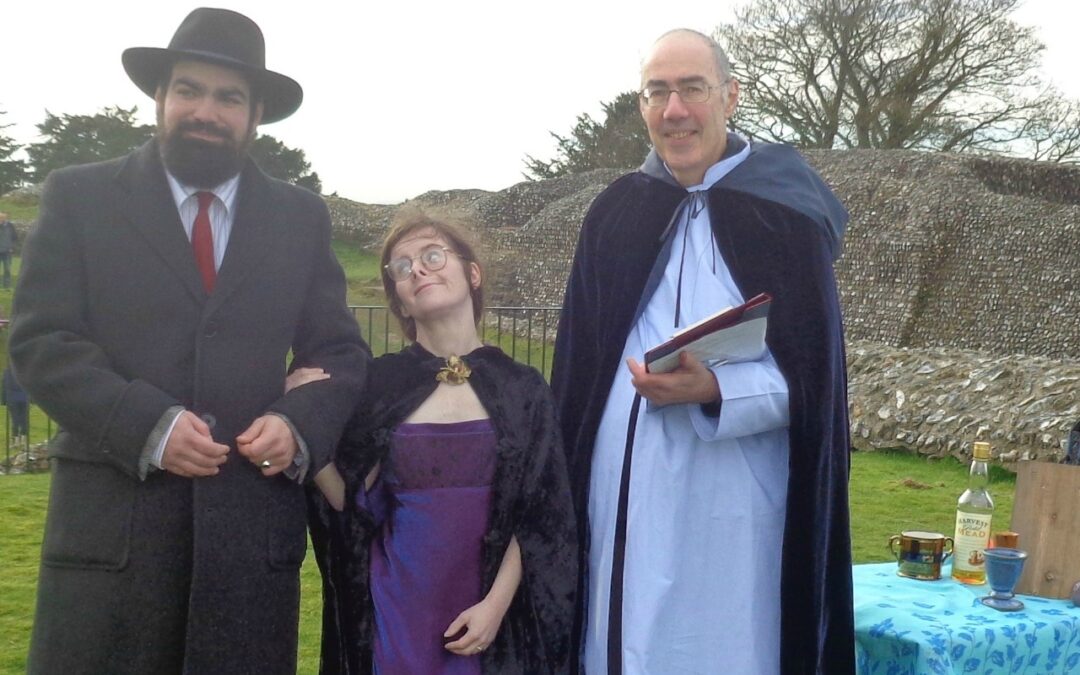
by Michael | Jun 3, 2024 | Blog
Of course I’m not alone in failing to find my vocation at first.
I started my working life (apart from student jobs) in a merchanting company. I was singularly unsuited for this, in truth, and lasted about 18 months.
I then became a teacher. While I was at university, the only career direction I had been sure of was that I would not become a teacher!
Well, 25 years down the line, I had proved myself wrong!
However, I didn’t really enjoy perhaps a quarter of the time I spent as a teacher, so it wasn’t truly what I was cut out for.
My mother, who had had hopes for me in business, was disappointed in my choice (I am sure), but, as I made my way up the ladder, became happier.
When she died in 2009, I was independently free for about a year – so I left the profession.
I went in to multi-level marketing, offering natural health products. This was really good for the self-development it encouraged, and I enjoyed selling remarkable products and making a difference. Unfortunately, I did not make money doing it.
This went on for a couple of years and something had to give.
One day, when I attended a business networking meeting, I met my first Civil Celebrant. Out of politeness, I made conversation with him. He was to infect me with his passion for celebrancy. Why on earth shouldn’t somebody be able to mark an important life-cycle occasion in the way that they wanted and in a way which meant something to them?
So I was hooked.
Two training weekends later in 2013, and I was ready to be unleashed on the world!
My focus has organically moved to funerals, but I still offer weddings (especially mixed-faith) and Vow Renewals, among other ceremonies. I love meeting the clients and helping them on their journey. I can help and advise them, and also facilitate their dreams.
It’s a thoroughly rewarding (though not necessarily that well-paid!) profession, and I’m so glad I stumbled upon it. Even if it took me till I was in my 50s to become part of it!
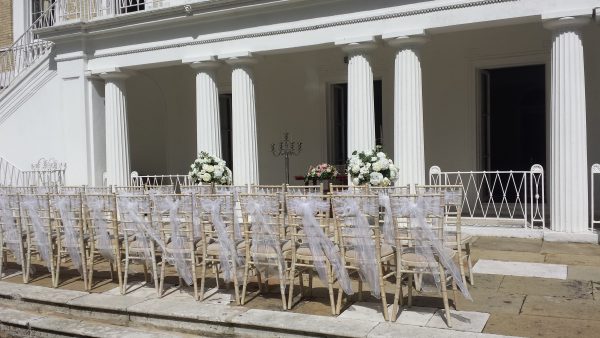
by Michael | May 27, 2024 | Blog
Almost by definition, weddings don’t come cheap! Indeed, for a wedding guest alone (in the UK), average spend is currently several hundred pounds. Don’t ask what it may cost to arrange a wedding!
One reason for the high expense rate is that you are likely to need a lot of suppliers. And all need to be paid.
Some undervalue themselves or feel the pressure of competition and lower their rates, so bargains can occasionally be had; many are reasonable enough; but others seem to take advantage of you!
Bear in mind that not everybody is able to do their work as well as them. They should have been trained, and possess particular skills and ability.
Obviously, clients have different perspectives and aims. No two weddings are the quite same. You may value what the suppliers offer in a different way to the next couple.
So it’s a good idea to do your homework carefully, and compare like with like.
The kind of suppliers you’re likely to want may include the following: a venue, wedding planner, florist, photographer, celebrant, caterer, make up artist, dress/suit hire.
You can go down the DIY route – arranging everything yourself – but there are inherent dangers in relying on amateurs and it can be very stressful in the final reckoning.
May I advise you to look for a celebrant? They can add an extra dimension to your event. What skills must they possess?
They need to be able to find out what your vision really is for the day. Can they listen well, not just imposing their own choices, although advice can often be invaluable)? They must be good writers when putting together the ceremony and, not least, be able to present well.
As regards myself, I hold a Diploma in Wedding Celebrancy and have over 11 years’ experience in conducting ceremonies. I am calm, friendly and professional. I belong to a respected professional association.
I feel justified in charging for my services (I’m probably mid-range).
Other suppliers will be experts in their fields too, so will be justified in charging what they do.
Your job is to weed out the one(s) you feel will chime best with your wants and whom you can trust. Obviously, don’t sign up with anyone until you have understood their Ts & Cs.
Once you have a suitable supplier on board, you won’t regret the outlay. And remember, you’re also paying for peace of mind, and how easy is that to put a price on!
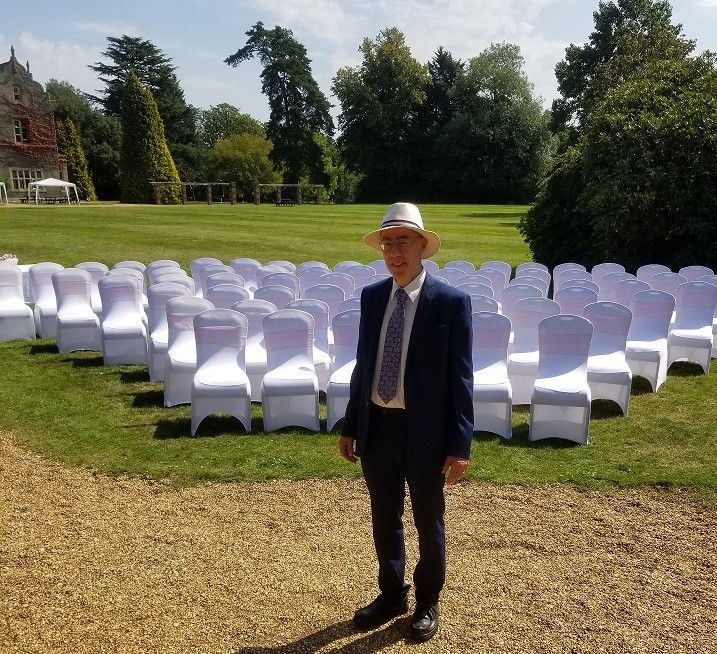
by Michael | May 21, 2024 | Blog
I graduated more years ago than I care to remember. In fact, I’ve reached the age when it’s difficult to remember anything! Joking apart, I studied French and Russian (with Czech) at the University of Leeds in the 1970s.
I knew I had an aptitude for languages, and studied German informally (in my free time). I eventually obtained an A grade at A level German, so my studies weren’t really that informal!
I finished with a IIi degree in Modern Languages, and no idea what to do with it. I did know that I didn’t want to teach, but that was it.
A connection of my father set me up in the shipping department of a textile company, where I lasted a year and a half. I wasn’t cut out for the job, but wasn’t given much guidance, in truth.
By then, I had been teaching (yes, I know) adults in an evening class. Business French was the subject – not a facet of French that I was particularly familiar with. So I had to be a step ahead of the class every week, but I got through it and even enjoyed it.
So I applied for posts in full-time teaching and eventually was invited for interview at an independent secondary boarding school in a beautiful Kent village. I almost missed my train that day and then the connecting bus, but somehow managed to arrive at the school and was offered the post.
I had to do a lot of learning myself (as I was untrained, of course), but, after six years I moved on, and my teaching career took off.
Eventually, after 25 years, I moved on, having lost my mojo. I went into natural health and wellness products, which I pursued for many years (until 2023, in fact). It was not a financial success, but enjoyable, valuable for personal development and proved beneficial to many people.
In 2013 I discovered celebrancy, and, after training, have pursued a successful and meaningful career in this area, which I love.
Languages stood me in good stead as a teacher (and when travelling), but I did not expect them to be of much use on my celebrancy path.
However, as it happens, I have performed several ceremonies (including a wedding and funerals) in Russian, a Vow Renewal in French, a couple of weddings in Hebrew, and part of a wedding in Swedish (which I don’t actually speak!). I never thought it would be so useful being a linguist!
I’m still waiting for an invitation to conduct a ceremony (or part of one) in German, or, indeed in Italian or Czech (both of which I can get by in). Maybe you can send me somebody who needs a multilingual ceremony?





